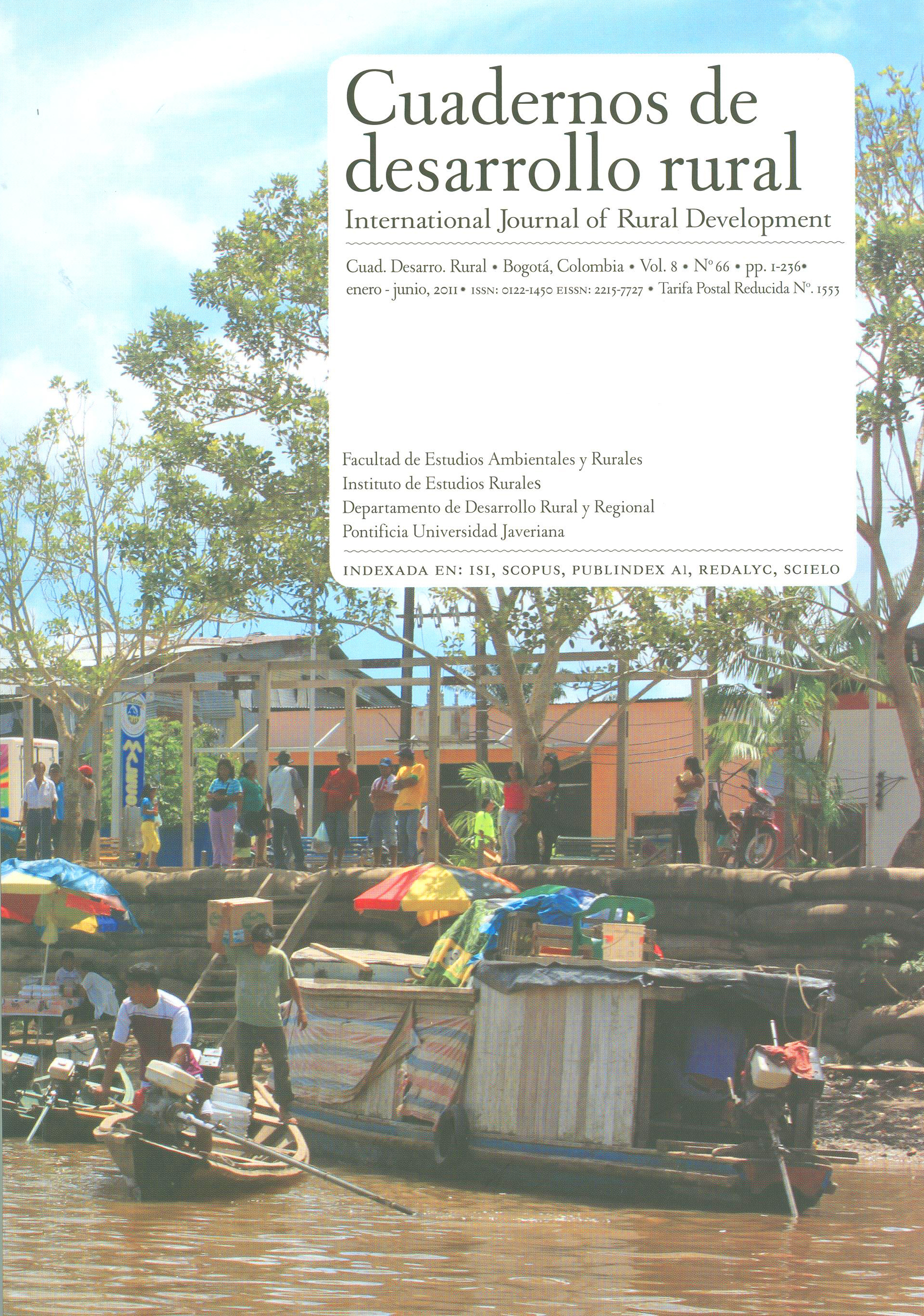Abstract
El capital social es una noción relativamente reciente, ubicado en el plano conceptual de las relacionesy los sistemas sociales, siendo alternativamente un recurso y una vía para acceder a recursos. Con estaconcepción, el capital social se transforma en una herramienta importante en la estrategia de vida delos individuos, al permitirle el acceso a otros recursos, fomentar su participación en organizaciones ypromover cursos de acción orientados a mejorar su nivel de inclusión social. Sobre la base de estas premisas,se condujo una investigación orientada a cuantificar y cualificar la presencia de capital social enla cadena aloe del estado Falcón, en términos de su naturaleza como factor promotor de interrelacionesentre sus agentes económicos, condicionantes estos, de su dinámica evolutiva.
La estrategia metódica sesustentó en el análisis de caso a fines de caracterizar la naturaleza del capital social de las asociacionesde productores presentes en la cadena aloe. Los resultados evidencian que dichas relaciones entre individuosafines al cultivo, están principalmente regidas por instituciones informales surgidas y evolucionadasa lo largo del tiempo. Asimismo, resalta la presencia de un fuerte capital social materializado enla actitud y proactividad de muchos de los miembros de la cadena, al establecer lazos orientados a conformaruna sólida base para la interconexión con los distintos entes afines al cultivo, dirigidas a sustentaracertadamente un esquema de desarrollo territorial rural sustentable.
Cuadernos de Desarrollo Ruralis registered under a Creative Commons Attribution 4.0 International Public License. Thus, this work may be reproduced, distributed, and publicly shared in digital format, as long as the names of the authors and Pontificia Universidad Javeriana are acknowledged. Others are allowed to quote, adapt, transform, auto-archive, republish, and create based on this material, for any purpose (even commercial ones), provided the authorship is duly acknowledged, a link to the original work is provided, and it is specified if changes have been made. Pontificia Universidad Javeriana does not hold the rights of published works and the authors are solely responsible for the contents of their works; they keep the moral, intellectual, privacy, and publicity rights.
Approving the intervention of the work (review, copy-editing, translation, layout) and the following outreach, are granted through an use license and not through an assignment of rights. This means the journal and Pontificia Universidad Javeriana cannot be held responsible for any ethical malpractice by the authors. As a consequence of the protection granted by the use license, the journal is not required to publish recantations or modify information already published, unless the errata stems from the editorial management process. Publishing contents in this journal does not generate royalties for contributors.


